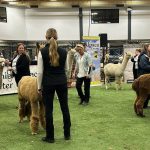“The organic systems were giving us higher net returns, and also more stable net returns, so a banker would really like that.” – BOB ZENTNER A 12-year study in semi-arid central Saskatchewan, comparing conventional, reduced-tillage and organic farming, found organic was the most profitable and made the most efficient use of non-renewable energy inputs. But



